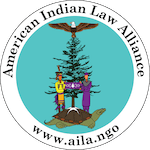I give this intervention on behalf of the Global Indigenous Women’s Caucus
Policy Recommendations to the Economic and Social Council from the Permanent Forum on Indigenous Issues:
- End Carbon Markets and REDD+ Projects. We reiterate the call for a Permanent Moratorium on all carbon markets and REDD+ programmes and projects. The United Nations and all of its bodies should immediately end all carbon markets and REDD+ projects, particularly those within the UNFCCC and UNCBD bodies.
- Following last year’s recommendations, we request the UNPFII support countries to establish national legislation to permanently block carbon offset and REDD+ projects.
- In order to track the ongoing violation, we recommend the creation of a transparent and publicly accessible database of rights violations to Indigenous Peoples due to carbon markets and REDD+ projects; and support processes to strengthen policies that enforce mandatory reporting in order to lessen human rights abuses, bribery, and other deceptive practices.
- Issue a call for a total cessation of fossil fuels at source before it is too late.
- Legally Operationalize UNDRIP within the UN system and especially in International Climate Agreements The UNFCCC, UNCBD, and related multilateral environmental agreements must take binding steps to integrate UNDRIP into their frameworks. Therefore, ensure that countries have robust systems and effective mechanisms to provide redress for Indigenous Peoples in accordance with Article 8 and 28 of UNDRIP.
- Recognize and Uphold Indigenous Jurisprudence and Governance Systems The United Nations should formally recognize Indigenous legal systems and customary governance as valid sources of law within international human rights and environmental regimes. This recognition must include establishing legal pathways to enforce Indigenous Peoples’ decisions against state or corporate actors violating sacred lands and the territorial integrity of Mother Earth.
Culture and Education:
Indigenous Peoples—especially youth—face barriers to accessing key UN materials like UNDRIP in their own languages, which make it difficult to achieve SDG: 4, 10, and 16. This lack of language justice silences their voices, limits meaningful participation, and hinders their ability to fully engage in global decision-making or advocate for their inherent rights.
We urge the Permanent Forum to uphold UNDRIP Article 13 by partnering with Indigenous Peoples to provide accessible translations of UNDRIP. Member States should fund language revitalization and support youth access through nation-based translation efforts.
Human Rights:
Indigenous Women and Children face intentional violence rooted in patriarchal and settler-colonial systems that underrepresent, criminalize, and violate their rights and bodies. This includes systemic reproductive violence like forced sterilization—a global pattern seen in Peru, where 300,000 Indigenous women were sterilized, and in Canada, where 12,000 were affected. These acts are not only genocide against Indigenous Women but also attacks on Indigenous Children and Mother Earth, violating Indigenous Rights. These acts violate SDG: 5, 3, 10 and 16.
The Permanent Forum must inform the UN and Member States must recognize and address the specific forms of violence Indigenous Women and Children face—such as sterilization, displacement, and cultural criminalization—and implement a justice-driven process to combat systemic gender-based violence. A global database on forced sterilization cases is also needed. While UNDRIP is not legally binding, treaties like the ICCPR, CAT, and CRC support its Articles 22 and 7.
Health:
Indigenous Peoples are at risk as the fossil fuel economy continues to exploit Indigenous Peoples and lands, driving climate catastrophes that threaten our connection to the land. This erasure targets both our ancestors’ legacy and future generations. From toxic pollution and droughts to deforestation and displacement, extractive industries profit off destruction. Sacred lands, sea relatives, and ecosystems are harmed, while Indigenous youth are criminalized for protecting them. These industries aim to sever our ties to land and culture, sustaining a settler-colonial system at the cost of Indigenous survival.
To achieve the Sustainable Development Goals: 13, 14 and 15, the UN and its Member States must halt all fossil fuel projects and hold extractive corporations accountable for environmental damage—requiring cleanup of abandoned and idled wells, and funding the restoration of sacred Indigenous lands.
Upholding UNDRIP Article 29 and the legally binding Paris Agreement, particularly Article 7.5, requires action rooted in Indigenous consent, participation, and knowledge. This is not a call for green capitalism, but for a true Indigenous Just Transition away from extractive economies.
We urge the creation of an international treaty recognizing fossil fuel expansion as a form of violence and genocide against Indigenous Peoples. Additionally, the Rights of Nature must be made legally binding to ensure the protection of Mother Earth and future generations.
English (PDF) Español (PDF) Français (PDF) Русский (PDF)

